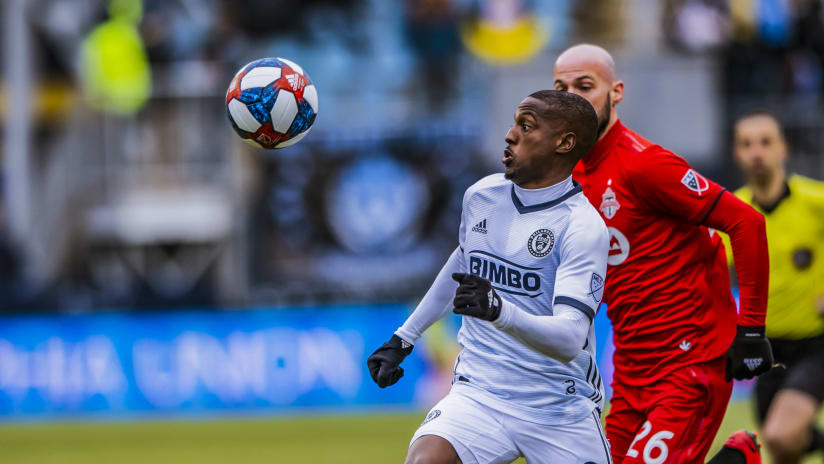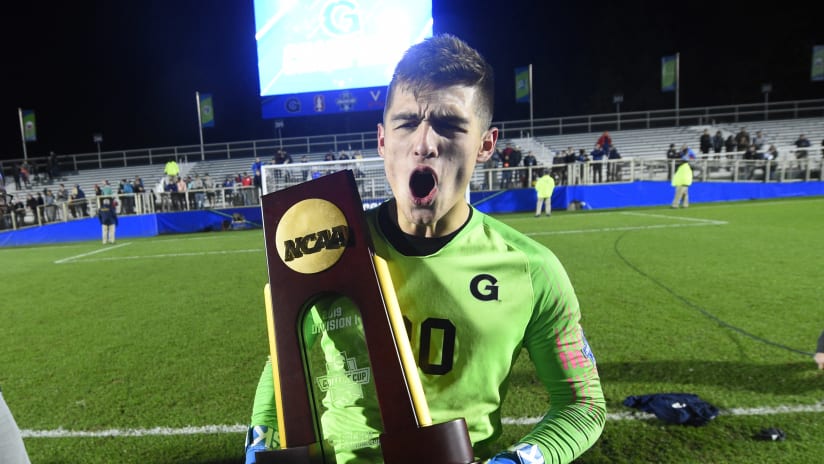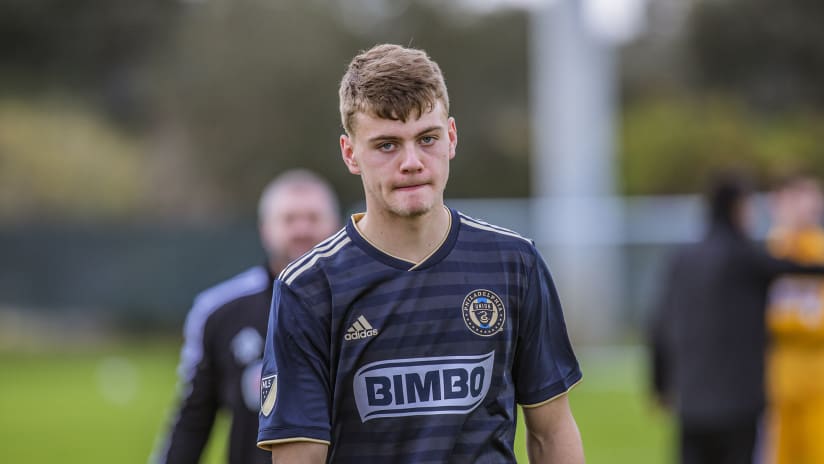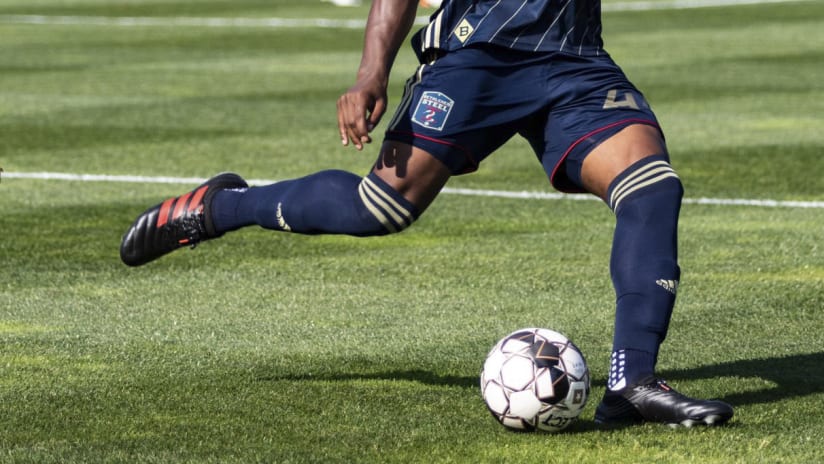Below is a feature from the March 23rd edition of Inside the Net.
Enough is enough.
That was Fafa Picault's message on Sunday as he sat in the visiting locker room in Atlanta, fresh off a 1-1 draw with the defending champs.
Picault had run himself into the ground; the Union's aggressive gameplan asking strikers to direct opponent attacks as they developed, dashing side to side and chasing down center backs from behind. Then: Burst forward in transition.
In the first half, Picault had sprung the Atlanta defense, dashing onto Brenden Aaronson's throughball and rounding Brad Guzan. Defender Miles Robinson, probably the Five Stripes' best player on the day, sprinted back to knock Picault's shot off the line.
Now, with the emotions of the match still as fresh as the sweat on his body, Picault opened his phone and tried to connect with a friend from Miami who was up for a visit. That's when he saw it. Nakedly hateful, the note in his Direct Messages wished pain on Picault and disease on him and his family.
It was brutal. But it wasn't at all surprising.
"I've received racist chants, monkey chants," Picault says stoically. "I've been spit at, I've gotten stuff posted -- personal items vandalized. It's not like I'm so sensitive that I can't take hatred."
The striker recounts endless tales of positive interactions with fans, and clearly loves the way he as an athlete can both affect and be affected by the energy and love that flows through the game of soccer. All that love comes at a price, though -- and it's not a one any athlete should have to pay. Early in his career, veterans candidly told him, 'Your career is going to be tough, kid.' So when he sees a derogatory message come in, or hears it flung casually from the stands he is not unprepared. "I want to make it clear," he says, "If somebody says they hate me, they hate my guts, I'm the worst player, I suck, I'm slow, I can't jump, I can't dribble, I'm terrible -- cool. Thank you, I'll send you a #SlowFeetDontEat hashtag... I'll send you ice cream, I don't know..."
He chuckles, and it's clear that examples of these insults are so common that they would spill forth from memory if he gave them any mind. "But there's a line you shouldn't cross, from passion to pure hatred."
Sometimes that hatred comes in the form of a monkey sticker on a car, other times spitting. When abuse is flung down during a match, it lands on humans in a raw emotional state, and Picault admits that, in those moments, it's difficult to respond in line with his values. "Obviously, my first reaction is a fleshly one," he says with a playful smile, reflecting on anger now controlled. "Who's this dude, and how can I slap him?
"But thank god for my spiritual side. Before you respond, you say a quick prayer in your head; try to find peace. And try to bring the Christ out before actually reacting in a foolish manner to somebody that is, in fact foolish."
Foolish is, perhaps, nearly too kind a term for those that issue threats and abuse to athletes. And at times, that abuse doesn't even come with particularly sharp edges, such as when Laura Ingraham told LeBron James to 'shut up and dribble.' Picault remembers the moment well.
"Again, when I say fans, most are awesome and I love interacting with them -- but you have those that feel that since they're on the other side of this line, or outside the pitch, that the athlete isn't a human and you can't respond to them because you're getting paid to do this job," he explains. "At a certain point you say: Okay, this has been going on too long," Picault continues. "And as the world's changing, I don't feel like athletes just have to take certain abuse anymore."
As he considers the way abuse has manifested during his career, the Union striker recognizes that it is borne from many sources. "You still get the race side," he says, "But it's also 'athlete.' Both sides play a part. Even now, I get racial messages. But hate towards a race is never an answer. It's never the right way."
The rule for Picault is simple: Hate is an unwelcome visitor, even if he accepts that it will be a common one. Yes, this attitude comes from his faith, family and friendships. But it also comes from, well, life; from insults thrown with such regularity that they form a pile around your psyche and threaten to create a barrier between you and a life of love. "People don't understand that that builds up over years," Picault says. "I pray for those people. I get angry in the moment, but I pray over it and let that grudge go and move on."
That repetitiveness is one motivator for Picault to speak out now, but he also feels strongly that his voice can be used to send a reminder to those that treat the men and women playing a sport as little more than functional means to desired ends. Picault has built lasting friendships in locker rooms, and he has seen teammates suffer through personal tragedies while continuing to churn out performances on the pitch night after night.
"People say it's a job like any other job but it's not. You're out there publicly on TV, playing in front of thousands. But that's where I find my peace, on the pitch."
At one point last season, Picault's peace was threatened, and the pitch became even more of a refuge. "The Orlando game last year," he says quietly. "We were waiting on news for a few days, and I find out a few hours before that my aunt passed. She died of a stroke. I've seen other teammates find out a father has just passed. Everybody takes it different -- imagine on that day you get that message.
"I don't know what you're capable of when you send a message like that," Picault continues. "And if this message had been just at me? Saying I died? Cool -- I wish you live, man. I send you a heart and a kiss. But when you start talking about my parents, you don't know what a player is going through personally in their life."
He pauses. "If somebody has enough pants to come say that to my face? We can speak. And whatever we are discussing there, it can end. At least we said it face to face."
We can speak. Picault means that he is unafraid of the faceless abusers that target athletes like him. But he also means that he is ready to bring a voice to a larger issue, even if it makes him a target. "When I do see injustice it frustrates me, and it angers me," he says firmly. "But when you really believe in it, there shouldn't be any fear in giving your voice on a matter.
"If we have to speak, speak. That's how I grew up and it doesn't change."













